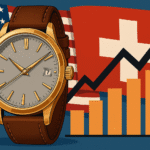Bucharest – The recent election of President Nicușor Dan in Romania has drawn attention across Europe as a case study in countering populism, particularly in a political climate where nationalist movements are gaining traction. Dan’s victory over George Simion, leader of the populist Alliance for the Union of Romanians (AUR), offers lessons for centrists facing similar challenges elsewhere.
From Post-Communist Struggles to a New Political Chapter
Romania’s political journey since the 1989 revolution has been marked by both democratic progress and turbulent episodes. The death of Ion Iliescu, the country’s first post-communist president, has revived memories of the early transitional years — including NATO accession and preparations for EU membership, but also episodes of violent political suppression.
Three decades later, Dan represents a markedly different leadership style. In an interview, he emphasized that his approach to defeating populism rested on addressing public mistrust in political institutions — a sentiment shared across much of Europe.
The Election Battle: Populists vs. Pro-Western Vision
In the first round of voting in May, Simion secured 41% compared to Dan’s much smaller share. However, in the second round, Dan reversed the outcome, winning with 54%.
According to Dan, three factors defined the contest:
- Foreign Policy – Dan supported a pro-Western stance, backing Ukraine and European rearmament, while Simion echoed pro-Russian narratives.
- Economic Direction – Dan advocated for an open, investor-friendly economy, in contrast to Simion’s calls for nationalisation.
- Dialogue – Despite political polarisation, Dan maintained a willingness to engage in discussions.
Root Causes of Populist Appeal
Dan identifies economic inequality, corruption, and educational gaps as drivers of populist sentiment. Despite economic growth since EU accession, many Romanians feel excluded from the benefits, especially when comparing their situation with relatives in Western Europe.
Romania’s record on corruption is particularly concerning. According to research highlighted by analyst Alina Mungiu-Pippidi, the country has lost more to corruption in the past decade than any other EU state. Dan says his experience as Bucharest mayor — particularly in improving financial management — will guide his anti-corruption agenda.
Economic and Fiscal Challenges Ahead
Romania faces the highest budget deficit in the EU, at 9%. Dan’s government aims to bring it down to 7% through spending cuts, delayed investments, tax increases, and a freeze on public sector wages. EU funding and credit ratings are at risk if progress is insufficient.
Relations with the EU
While public support for EU membership remains strong (70–80%), frustrations persist, particularly over the delayed Schengen entry — blocked for years by Austria and the Netherlands despite Romania meeting technical requirements. Dan warns that such delays have fueled narratives portraying Romania as a “second-class” EU member.
Balancing Freedoms and Extremism Risks
Dan has faced criticism for opposing a hate speech law, citing concerns over free expression. Romania’s Jewish community has warned the move could embolden extremists, highlighting the delicate balance between rights protection and social safeguards.
An Ongoing Battle Against Populism
Although Dan’s victory is seen as a setback for nationalist forces, the political contest is far from over. The AUR and other populist movements remain influential, and the government’s handling of economic reforms will be key to maintaining public trust.








